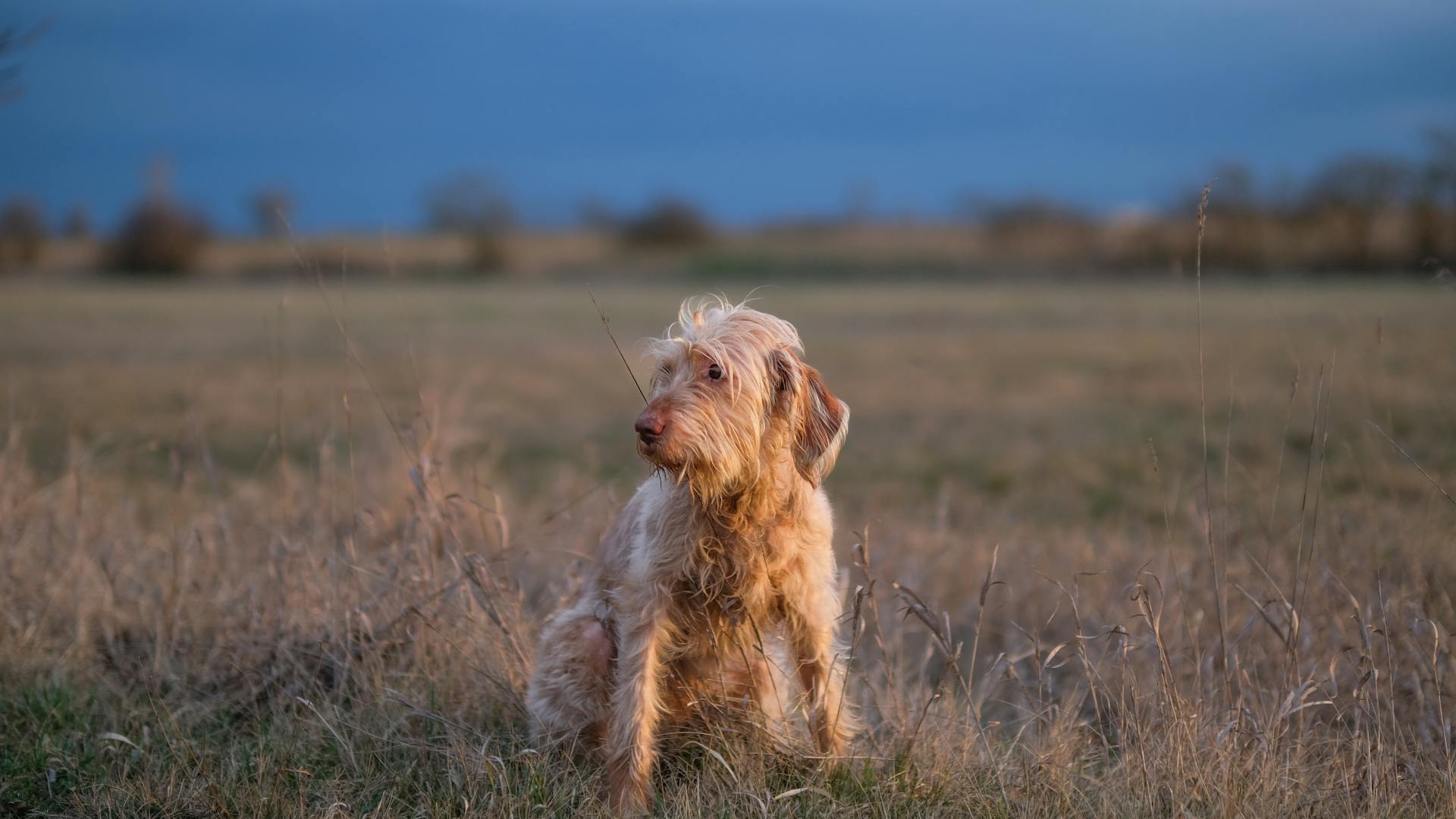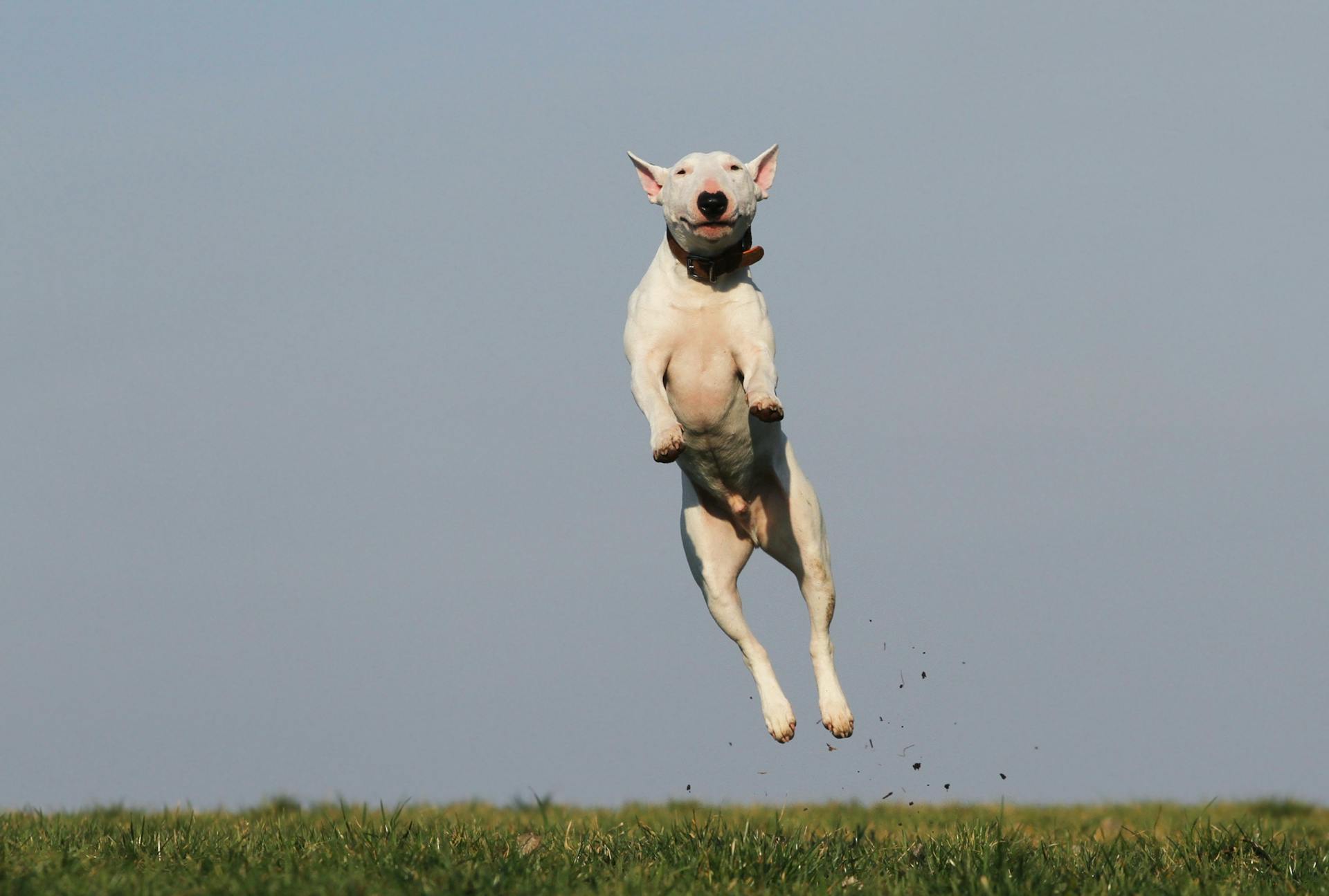
Cane Corsos can be a bit stubborn at times, but with consistent and positive reinforcement training, they can learn to obey commands and behave well.
They're highly intelligent and respond well to structure and routine, which makes them relatively easy to train compared to other breeds.
Cane Corsos are naturally protective of their families, but with early socialization and training, they can learn to differentiate between strangers and potential threats.
With patience, persistence, and positive reinforcement, you can teach your Cane Corso to be a well-behaved and loving companion.
Socialize Early & Often
Socializing your Cane Corso early and often is crucial for their development and training. This sensitive breed generally responds well to positive reinforcement and lots of praise.
A well-socialized Cane Corso will be easier to train, more comfortable around other people and animals, less likely to bite or become aggressive, and overall, a better companion. To socialize your Cane Corso, expose them to various situations, such as busy places like malls, parks, and beaches, and introduce them to people of different ages, sizes, genders, and more.
Here are some specific tips to get you started:
- Walk your puppy on different surfaces, like concrete, tiles, grass, dirt, and sand.
- Bring your puppy to busy places like malls, parks, and beaches.
- Introduce your pup to people of different ages, sizes, genders, and more.
- Arrange playdates with other dogs.
- Take them for car rides.
- Expose them to various noises, such as loud machines, honking cars, barking dogs, children playing, and more.
- Schedule regular trips to the vet to familiarize them with the experience.
By socializing your Cane Corso early and often, you'll set them up for success in training and help them become a well-adjusted, loving companion.
Life Stages and Development
Cane Corso puppies tend to be calm, relatively focused and eager to please, making them easy to train and socialize.
Their calm nature helps them learn quickly, but they do grow quickly and can become more willful and assertive as their size increases.
The age of two weeks to 13 weeks is a sensitive learning period, where behaviors learned during this time have a tendency to stick throughout the puppy's life.
Research shows that training and socialization during this period are critical to setting your pup on the path to success.
Cane Corso adolescence is the most challenging stage when it comes to training and handling young corsi, as they grow quickly and become large enough to be hard to handle when still untrained.
For your interest: How Long Do Cane Corsos Grow
The biggest and hardest chunk of training will actually focus on their adolescence and teenage months, requiring lots of patience and consistency.
By six months, your Corso pup will reach sexual maturity and enter an adolescent stage, where they may begin testing boundaries and asserting themselves as the boss.
It's essential to be firm with your pup and reinforce boundaries during this stage, while continuing to practice obedience and refine their response to commands.
If you've put in the work to train and socialize your Cane Corso properly, it will grow into a calm, sweet and extremely loyal and loving adult.
To maintain this temperament, your adult Cane Corso will need a lot of activity and stimulation, as well as continual training reinforcement to remind them of who's in charge.
Exercise and Activity
Cane Corso owners need to provide their dogs with daily walks or hikes to give them a chance to sniff and explore.
Daily walks or hikes can help tire out your Cane Corso physically, but they also need mental stimulation.
Training and teaching tricks can help relax your Cane Corso mentally as well as physically.
Cane Corsos are not satisfied with a quick game of fetch or tug, so you'll need to think outside the box when it comes to exercise.
Dog sports like obedience, agility, tracking, or protection sports can provide the stimulation your Cane Corso needs.
These activities can help tire out your Cane Corso and keep them happy and engaged.
Leadership and Safety
If you're considering bringing a cane corso into your family, leadership is key to their training and behavior. A good cane corso parent is someone who can patiently provide instruction, create structure and consistently enforce boundaries without being intimidated by the breed's size and strength.
Cane corsos need a strong leader to avoid assuming they are in charge and trying to set their own rules. Without proper leadership, they can become dominant and difficult to manage. They respect an owner who can provide firm but patient leadership and enforce their boundaries.
To keep your cane corso safe and out of trouble, a sturdy fence is essential to prevent them from roaming, charging at perceived threats or fighting with other dogs. Regular, consistent training and socialization are also crucial to help them distinguish between friend or foe.
A well-trained cane corso is less likely to be aggressive and more likely to be a calm, quiet companion. By providing them with mental stimulation, exercise, and positive reinforcement training, you can help them build positive associations with the world around them.
Here are some safety tips to keep in mind:
- A strong, sturdy fence can keep your corso from roaming or fighting with other dogs.
- Focus on training your cane corso not to jump on people or pull on its leash.
- When on a leash, the dog should be led by someone who has the size, strength and confidence to handle it.
- Giving your cane corso plenty of activity and exercise will help them stay relaxed and calm.
- Socialize your cane corso to children, cats and small dogs from a very young age.
Choosing a Cane Corso
If you're considering bringing a Cane Corso into your life, it's essential to choose this breed carefully. They thrive with experienced owners who can provide proper training from an early age.
Cane Corsos are naturally territorial and protective, which can lead to over-aggression if not addressed. They need a strong and consistent leader within the household to respect and follow.
A Cane Corso's temperament can make them a wonderful family pet, but only if you can establish a strong bond with them. They love affection and will be devoted to their family.
Their short, double-layered coat makes them relatively easy to groom, but they do shed their undercoat year-round. Brushing them once a week will keep them looking their best, and daily brushing during shedding season will prevent matting.
As a breed, Cane Corsos are naturally inclined to be guard dogs, thanks to their intimidating looks and strong sense of loyalty.
If this caught your attention, see: Are Cane Corsos Family Dogs
Training Techniques
The cane corso responds well to positive reinforcement and lots of praise, making it a great candidate for reward-based training.
Using corrections or punishment can have big negative impacts on this breed, so it's essential to focus on rewarding good behaviors instead.
Reward your puppy the moment they successfully complete a task to associate the act with the reward, making them more likely to do it again.
Punishment will only make your dog less likely to cooperate in future training sessions, so it's best to avoid it altogether.
Teaching good manners, such as not jumping or leaning on people or pulling on their leashes, is crucial to prevent accidents with a dog of this size and strength.
With proper training and plenty of socialization, the cane corso can make a good family dog, forming protective bonds with children and getting along well with other pets.
FAQs and Reviews
Cane Corso owners often ask if their dogs are easy to train, and the answer is a resounding yes. With the right approach, Cane Corsos can learn quickly and become loyal companions.
Cane Corsos are intelligent and eager to please, making them highly trainable. They respond well to positive reinforcement training, which is a great approach for any dog owner.
However, Cane Corsos can be stubborn at times, so it's essential to establish respect and clear boundaries early on. This will help prevent them from becoming the boss of the household.
According to Cane Corso owners, a well-structured training program can make a huge difference in their behavior. One owner reported that their Cane Corso learned commands quickly and became a loyal companion.
Here are some key takeaways for training a Cane Corso:
- Average lifespan: 9-12 years
- Size: Males 62-70cm tall, 45-50kg; Females 58-66cm tall, 40-45kg
- Dominant breed: Can be aggressive with other dominant breeds, but relaxed with less dominant breeds
- Recommended for: Experienced owners, as they require respect and clear boundaries
Overall, with patience, consistency, and positive reinforcement, Cane Corsos can become well-behaved and loving companions.
Frequently Asked Questions
What are the cons of owning a Cane Corso?
Owning a Cane Corso can be challenging due to their strong will and potential for dominance, requiring a firm but patient owner. They also require regular mental and physical stimulation to prevent boredom and destructive behavior.
Sources
- https://www.forbes.com/advisor/pet-insurance/pet-care/cane-corso-temperament/
- https://www.platinumk9.com/the-breed-files-02-cane-corso/
- https://www.akc.org/expert-advice/puppy-information/how-to-train-a-cane-corso-puppy-milestones-timeline/
- https://www.dogster.com/dog-training/how-to-train-a-cane-corso
- https://www.trainpetdog.com/breed/Cane-Corso/
Featured Images: pexels.com


